
Ibarra: The White City of Ecuador
Ibarra, often called the White City due to its beautiful whitewashed colonial buildings, is a picturesque destination nestled in the northern highlands of Ecuador. This charming city, founded in 1606, offers a blend of rich history, vibrant culture, and stunning natural scenery, making it a must-visit for any traveler looking to experience the authentic Ecuadorian way of life. Wander through the cobblestone streets of the historic center and marvel at the elegant architecture, including the iconic La Merced Church and the grand Cathedral of Ibarra. The city’s museums, such as the Ibarra Archaeological Museum, provide fascinating insights into the region's past, showcasing artifacts from pre-Columbian times to the colonial era. Nature enthusiasts will find plenty to explore in and around Ibarra. The nearby Yahuarcocha Lake, known as the “Blood Lake” due to a historic battle, offers opportunities for boating, fishing, and bird watching. For a more adventurous experience, head to the Imbabura Volcano, where hiking trails provide breathtaking views of the surrounding landscapes. Ibarra is also renowned for its lively markets, where you can sample local delicacies such as helados de paila, traditional ice cream made in large copper pans. The city’s warm and welcoming atmosphere, coupled with its array of attractions, ensures a memorable visit for every traveler.
Local tips in Ibarra
- Visit the local markets early in the morning to experience the freshest produce and vibrant local life.
- Try helados de paila, a traditional hand-made ice cream, for a unique and delicious treat.
- Take a boat ride on Yahuarcocha Lake for a relaxing experience with beautiful views.
- Wear comfortable shoes as the cobblestone streets can be uneven and require sturdy footwear.
- Check the weather forecast before planning a hike up Imbabura Volcano, as conditions can change rapidly.
Ibarra: The White City of Ecuador
Ibarra, often called the White City due to its beautiful whitewashed colonial buildings, is a picturesque destination nestled in the northern highlands of Ecuador. This charming city, founded in 1606, offers a blend of rich history, vibrant culture, and stunning natural scenery, making it a must-visit for any traveler looking to experience the authentic Ecuadorian way of life. Wander through the cobblestone streets of the historic center and marvel at the elegant architecture, including the iconic La Merced Church and the grand Cathedral of Ibarra. The city’s museums, such as the Ibarra Archaeological Museum, provide fascinating insights into the region's past, showcasing artifacts from pre-Columbian times to the colonial era. Nature enthusiasts will find plenty to explore in and around Ibarra. The nearby Yahuarcocha Lake, known as the “Blood Lake” due to a historic battle, offers opportunities for boating, fishing, and bird watching. For a more adventurous experience, head to the Imbabura Volcano, where hiking trails provide breathtaking views of the surrounding landscapes. Ibarra is also renowned for its lively markets, where you can sample local delicacies such as helados de paila, traditional ice cream made in large copper pans. The city’s warm and welcoming atmosphere, coupled with its array of attractions, ensures a memorable visit for every traveler.
When is the best time to go to Ibarra?
Iconic landmarks you can’t miss
Parque Ciudad Blanca (Céntrica)
Discover the breathtaking beauty and cultural richness of Parque Ciudad Blanca, a state park in Ibarra, Ecuador, perfect for nature lovers and adventure seekers.
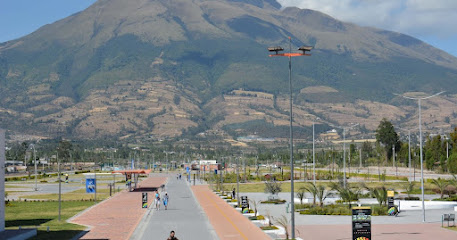
Pedro Moncayo Park
Explore the lush landscapes and vibrant culture at Pedro Moncayo Park, a tranquil oasis in Ibarra, Ecuador.
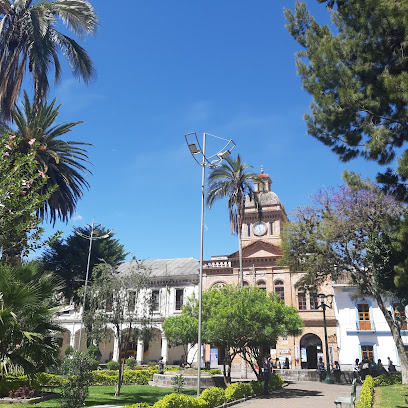
Mirador San Miguel Arcangel
Experience breathtaking panoramic views of Ibarra’s stunning landscapes at the iconic Mirador San Miguel Arcangel, a must-visit observation deck in Ecuador.
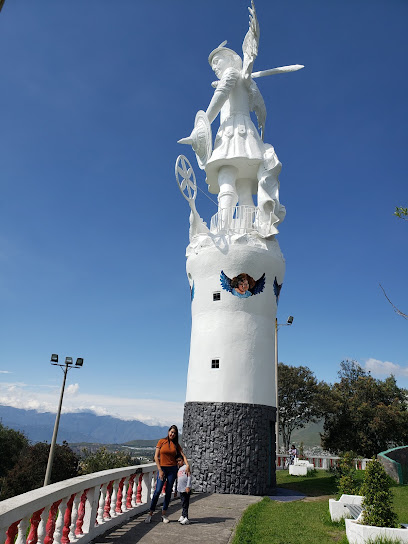
El Barbaro
Discover the rich flavors of Ecuador at El Barbaro, a top-rated restaurant in Ibarra renowned for its unique dishes and warm hospitality.
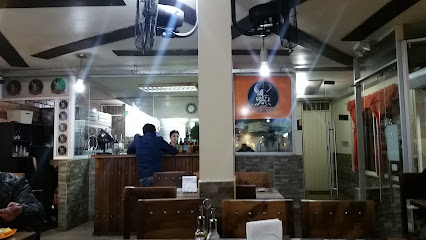
La Estelita
Experience the charm of Ibarra at La Estelita, a cozy hostel offering warm hospitality, comfortable rooms, and a perfect base for cultural exploration.

Francisco Calderón Park
Experience the serene beauty of Francisco Calderón Park in San Antonio de Ibarra, a perfect spot for relaxation, nature walks, and cultural exploration.
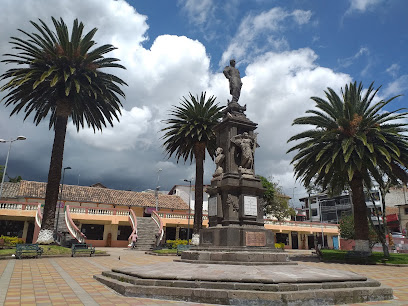
Centro Cultural El Cuartel
Discover the vibrant art and cultural scene at Centro Cultural El Cuartel in Ibarra, a must-visit destination for every traveler.
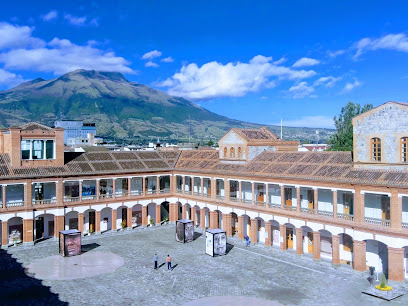
Laguna de Yahuarcocha
Explore the serene beauty of Laguna de Yahuarcocha, a tranquil lake near Ibarra, Ecuador, perfect for outdoor activities and cultural experiences.
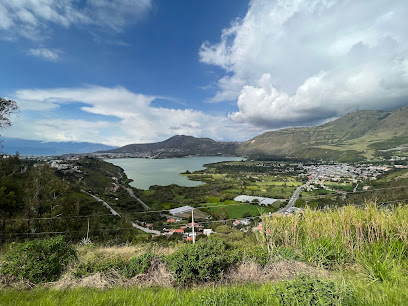
Tolas de Socapamba
Experience tranquility and adventure at Tolas de Socapamba, a premier resort hotel nestled in the breathtaking Andes of Ibarra, Ecuador.
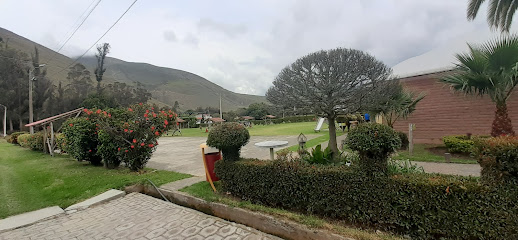
ARTE VISTA
Experience the fusion of art and gastronomy at ARTE VISTA, the must-visit restaurant in Ibarra, Ecuador.
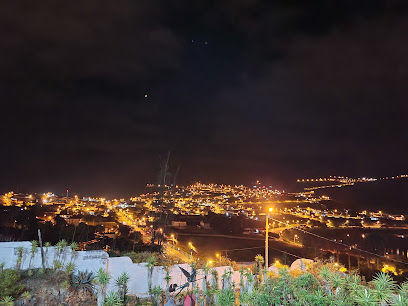
Central Bank Museum - Ibarra
Explore Ecuador's cultural treasure at the Central Bank Museum in Ibarra, where history and art come alive in a serene setting that captivates every visitor.
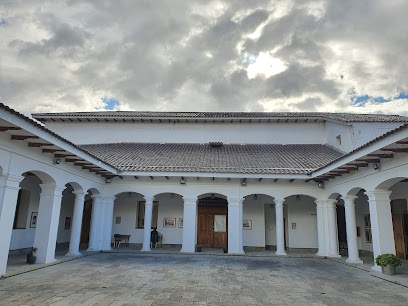
Esquina del Coco
Discover the vibrant atmosphere and delicious Ecuadorian cuisine at Esquina del Coco, a must-visit tourist attraction in Ibarra.
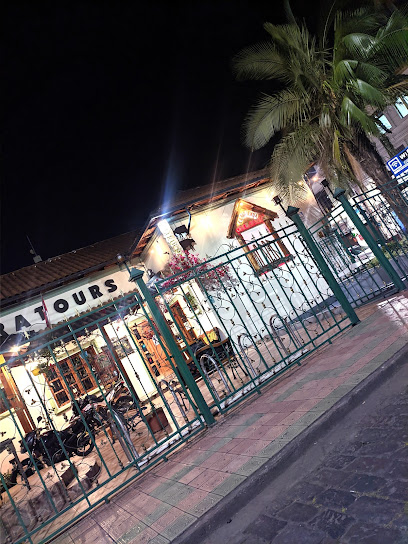
Centro Cultural Daniel Reyes
Experience the artistic heritage of San Antonio de Ibarra at the Centro Cultural Daniel Reyes, a must-visit museum showcasing local craftsmanship and culture.
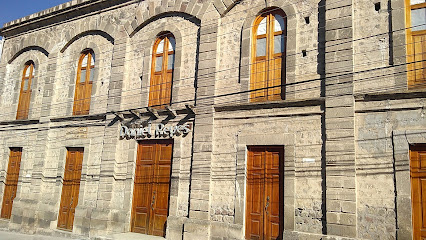
Salinas De Ibarra
Explore Salinas De Ibarra, a captivating museum showcasing the art of salt extraction and vibrant Ecuadorian culture amidst stunning landscapes.
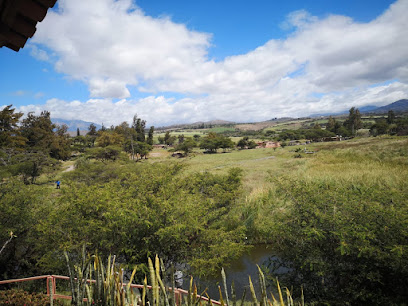
Museo Nicolas Herrera
Discover the rich cultural heritage of Ecuador at Museo Nicolas Herrera, where art and history meet in a captivating setting.
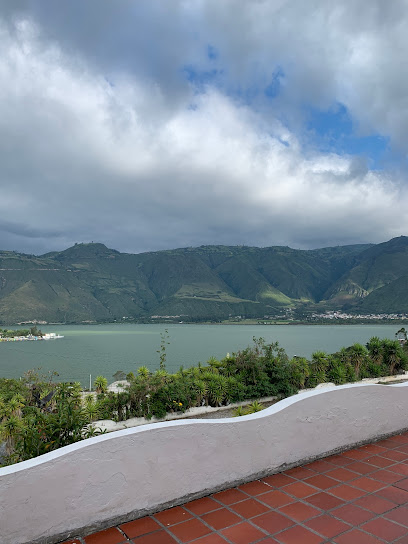
Unmissable attractions to see
Peguche Waterfall
Explore the breathtaking Peguche Waterfall in Otavalo, Ecuador - a natural wonder surrounded by lush landscapes and rich cultural heritage.
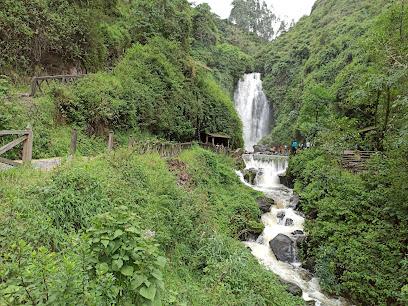
Parque Ciudad Blanca (Céntrica)
Discover the serene beauty and recreational opportunities at Parque Ciudad Blanca, a must-visit destination in Ibarra, Ecuador.
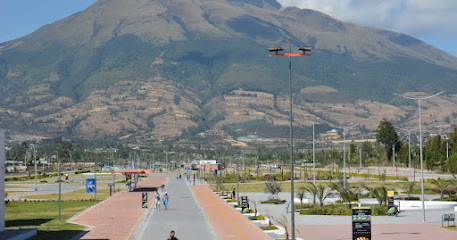
Pedro Moncayo Park
Discover the tranquility and beauty of Pedro Moncayo Park in Ibarra, a perfect escape for nature lovers and families seeking outdoor adventure.
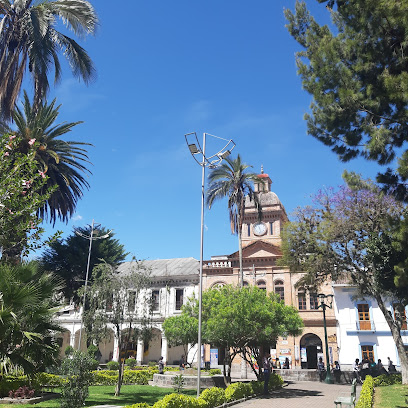
Condor Park
Explore the wonders of Condor Park in Otavalo, a sanctuary for Andean condors and native wildlife, where nature and conservation meet.
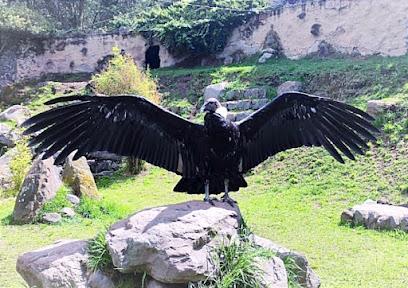
Caranqui Park
Explore the tranquil beauty of Caranqui Park in Ibarra, Ecuador—a perfect retreat for relaxation, picnics, and vibrant local culture.
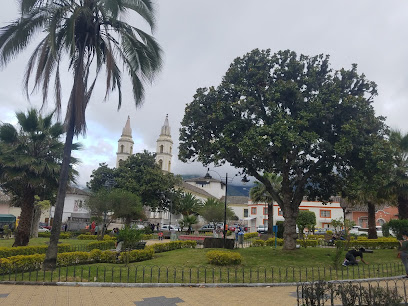
Cochasqui Archaeological Park
Explore Cochasqui Archaeological Park, a stunning site in Ecuador showcasing ancient pyramids and rich cultural heritage amidst breathtaking landscapes.
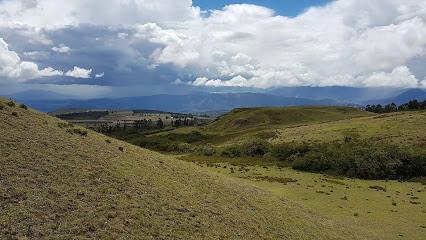
Quitsato Solar Clock
Discover the rich history and astronomical significance of the Quitsato Solar Clock, an iconic museum along Ecuador's Pan-American Highway.
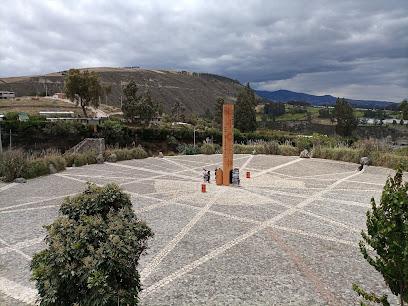
Laguna Cuicocha
Experience the stunning beauty of Laguna Cuicocha, a volcanic lake in Ecuador, where adventure and tranquility meet amidst breathtaking landscapes.
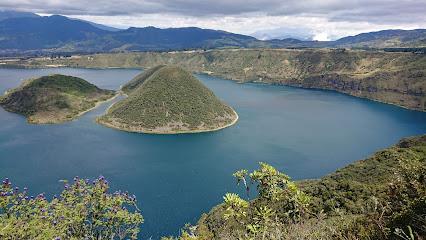
Mirador de Otón
Discover the breathtaking views from Mirador de Otón, an unforgettable observation deck in Quito, Ecuador, offering a unique perspective of the Andes and cityscape.
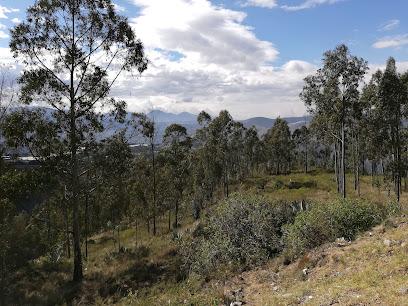
Laguna de San Pablo
Experience the serene beauty and cultural richness at Laguna de San Pablo, a stunning lake surrounded by the majestic Andes in Ecuador.
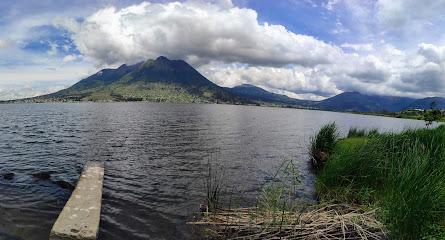
Familia Yacucalle ibarra Park
Escape to the tranquil greenery of Familia Yacucalle Ibarra Park, a family-friendly oasis in Ibarra, Ecuador, perfect for nature lovers and relaxation seekers.
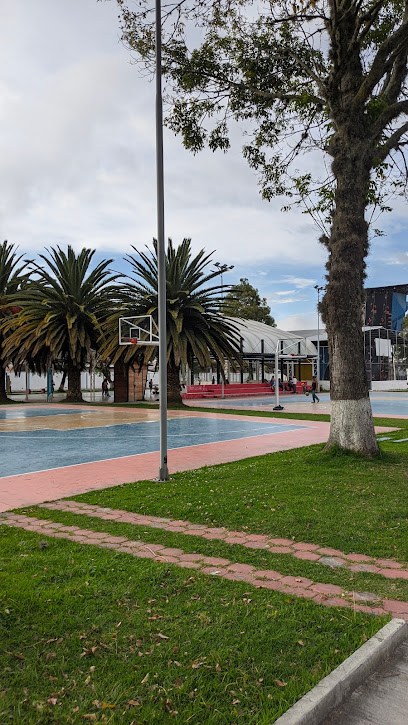
Central Bank Museum - Ibarra
Explore the Central Bank Museum in Ibarra, where Ecuador's vibrant heritage comes to life through captivating exhibits and artifacts.
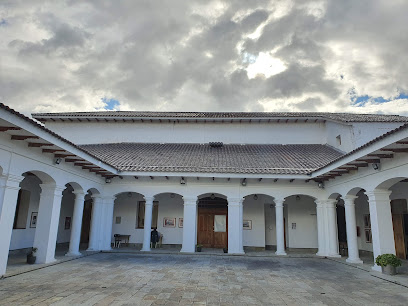
Parque Recreacional y Bosque Protector Jerusalem
Explore the natural beauty of Parque Recreacional y Bosque Protector Jerusalem in Quito, a serene national park filled with lush landscapes and diverse wildlife.
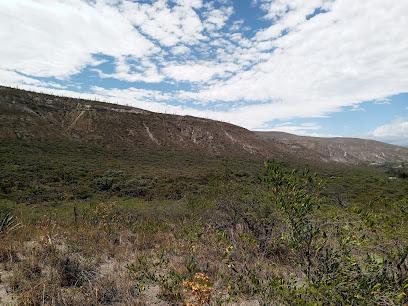
Catedral La Matriz de Cotacachi
Explore the architectural beauty and cultural significance of Catedral La Matriz de Cotacachi, a must-visit attraction in the heart of Ecuador.
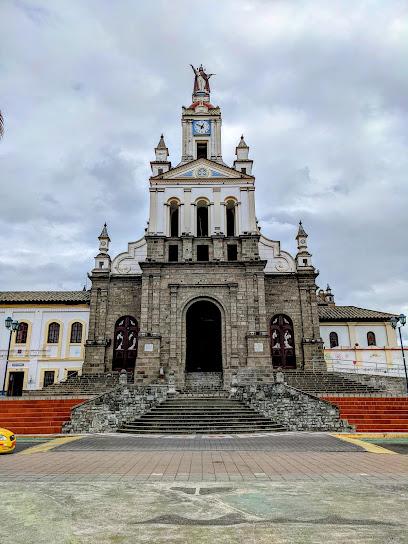
Mirador del Oso Andino
Discover the stunning landscapes of Pimampiro from the Mirador del Oso Andino, an observation deck that promises breathtaking Andean views.
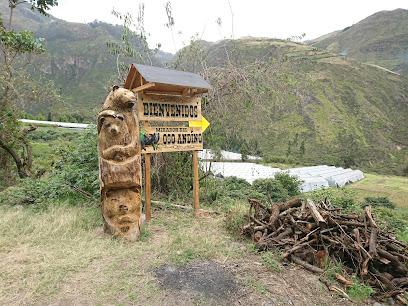
Essential places to dine
El Barbaro
Discover authentic Ecuadorian cuisine at El Barbaro in Ibarra – where tradition meets flavor in every dish.
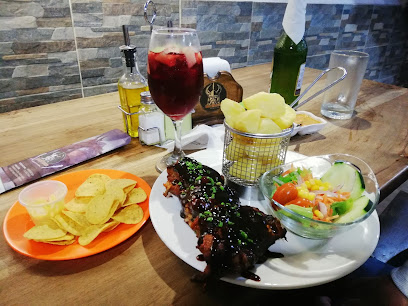
CHORIGOL IBARRA Parrilla Argentina
Experience authentic Argentinian cuisine at Chorigol Ibarra with exquisite grilled meats and fine wines in a warm atmosphere.
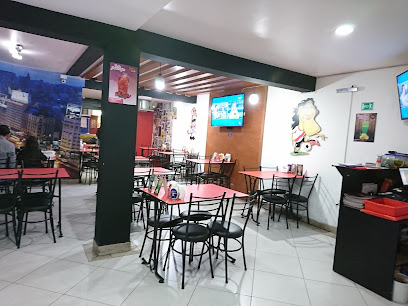
aLabuena Bar & Lounge
Discover Ibarra's culinary gem at aLabuena Bar & Lounge - where exquisite grilled flavors meet vibrant nightlife.
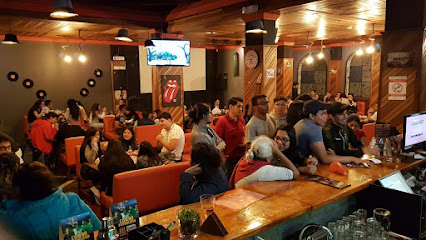
El Diablo es Puerco - COCINA PERUANA
Experience authentic Peruvian cuisine at El Diablo es Puerco - COCINA PERUANA in Ibarra, where every meal is a celebration of flavor.
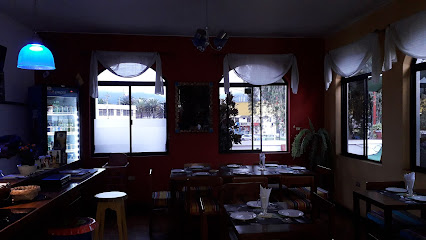
Gran Chalet
Discover the flavors of Ecuador at Gran Chalet - where culinary excellence meets warm hospitality in Ibarra.
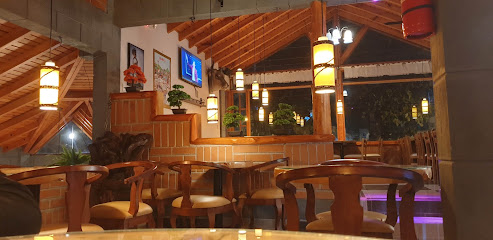
Los Cebiches de la Rumiñahui - La Quinta, Ibarra
Discover authentic Ecuadorian seafood at Los Cebiches de la Rumiñahui in Ibarra - where fresh flavors meet vibrant culture.
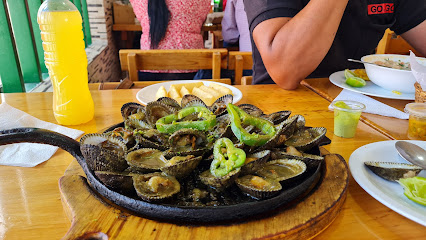
Rancho San Jose
Experience authentic Ecuadorian flavors at Rancho San Jose in Ibarra - where every meal is a celebration of local culinary traditions.
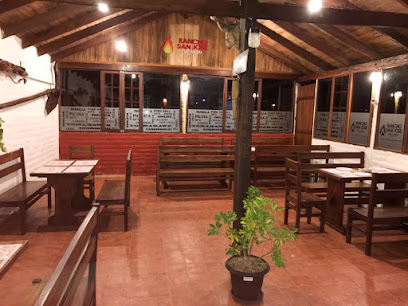
Caribou Restaurant
Discover authentic Ecuadorian cuisine at Caribou Restaurant in Ibarra – where every dish tells a story of tradition and flavor.
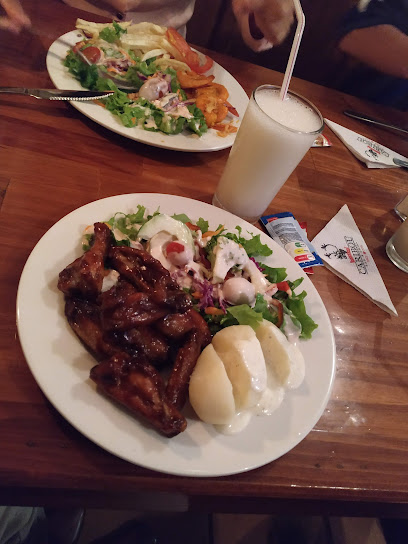
bistrounge bar restaurante
Experience the essence of Ecuadorian cuisine at Bistrounge Bar Restaurante in Ibarra - where tradition meets contemporary dining.
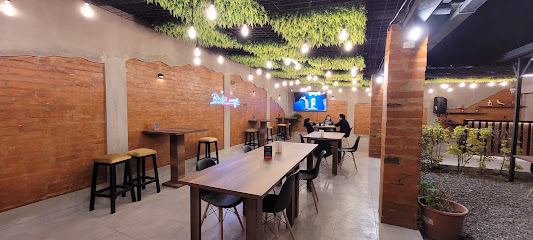
ARTE VISTA
Discover ARTE VISTA in Ibarra – where exquisite cuisine meets captivating art in a delightful dining experience.
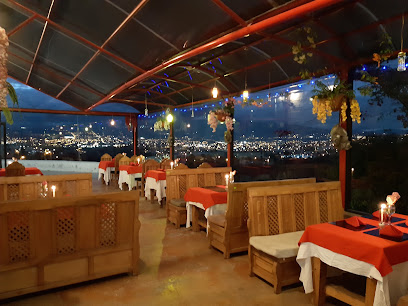
Ibérica Ribs
Discover Ibérica Ribs in Ibarra: A haven for barbecue lovers offering mouthwatering Spanish cuisine in a cozy setting.
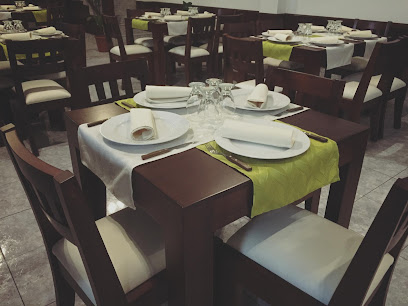
The Brunch
Discover The Brunch in Ibarra - where delicious flavors meet a cozy atmosphere for an unforgettable dining experience.
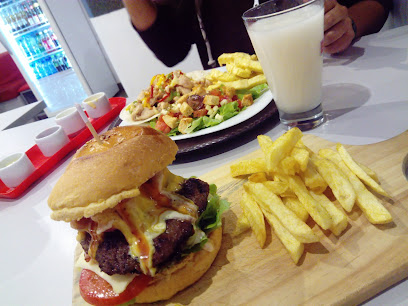
La Contenta Piedra & Grill
Discover La Contenta Piedra & Grill in Ibarra for an authentic taste of Ecuadorian grilled cuisine amidst a cozy atmosphere.
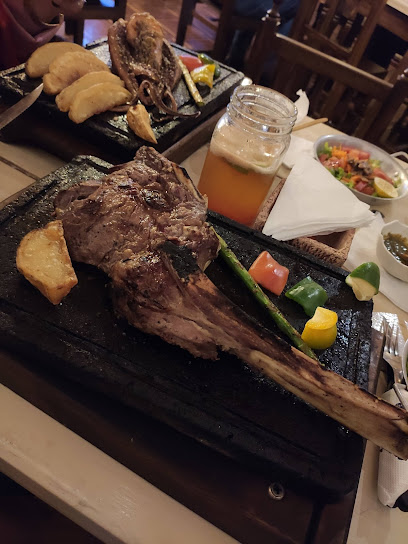
La Jungla
Experience the vibrant flavors of Ecuador at La Jungla—a culinary gem in Ibarra offering fresh dishes in a tropical setting.
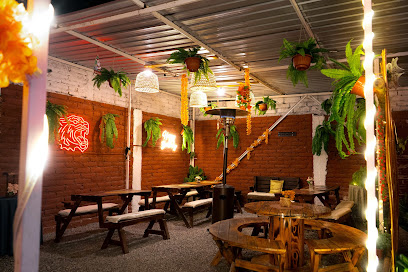
El Rincón Tsachila
Discover the freshest seafood at El Rincón Tsachila in Ibarra, where authentic Ecuadorian flavors meet exceptional dining experiences.
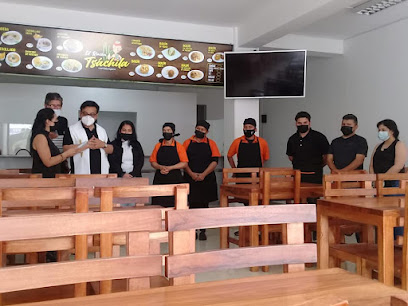
Markets, malls and hidden boutiques
Plaza Shopping Center
Discover the Plaza Shopping Center in Ibarra: A vibrant shopping and dining destination showcasing local culture and global brands.
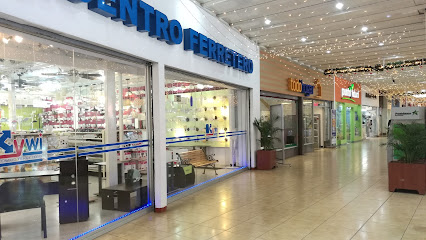
Centro Comercial Laguna Mall
Explore Centro Comercial Laguna Mall in Ibarra: Your ultimate shopping and dining destination for a vibrant local experience.
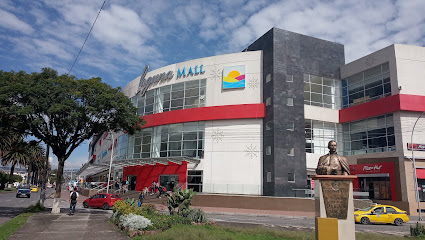
ETAFASHION
Explore stylish apparel at ETAFASHION in Ibarra, Ecuador - your ultimate shopping destination for trendy clothing and local fashion.
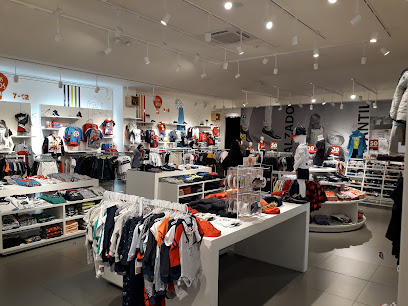
Galilea Boutique
Explore unique fashion at Galilea Boutique in Ibarra, where contemporary style meets local flair, making it a must-visit for tourists.
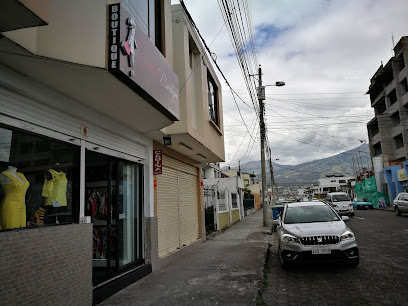
EGIPCIA BOUTIQUE
Explore EGIPCIA BOUTIQUE in Ibarra for stylish and trendy youth clothing that captures the essence of Ecuadorian fashion.
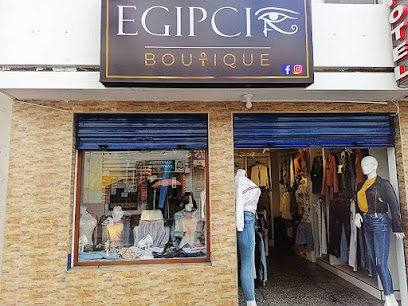
Atico Accesorios
Explore Atico Accesorios, Ibarra’s premier fashion accessories store, featuring unique items that blend local artistry with contemporary style.
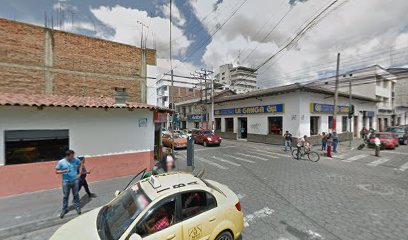
ANIS BOUTIQUE
Explore the stylish offerings of Anis Boutique in Ibarra, where local fashion meets unique design for an unforgettable shopping experience.

EGIPCIA Boutique 2
Explore contemporary fashion at EGIPCIA Boutique 2 in Ibarra, where local charm meets modern style in a unique shopping experience.
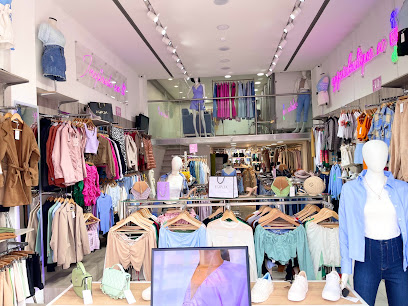
Detallitos Josue
Explore the charm of Ecuadorian craftsmanship at Detallitos Josue, Ibarra's premier gift shop for unique souvenirs and local artistry.
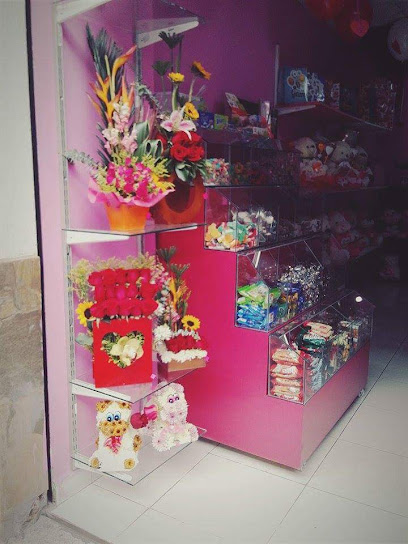
DYM boutique
Explore DYM Boutique in Ibarra for unique fashion pieces that embody the local culture and style, providing a memorable shopping experience in Ecuador.

JL GAMES
Explore JL GAMES in Ibarra for unique Ecuadorian gifts and souvenirs that embody local culture and craftsmanship.
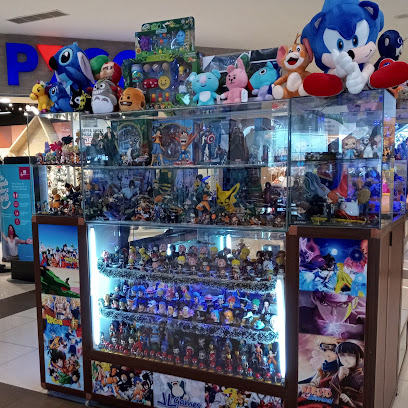
Minty Detalles
Explore Minty Detalles in Ibarra for unique Ecuadorian gifts and souvenirs that capture the essence of local craftsmanship and culture.
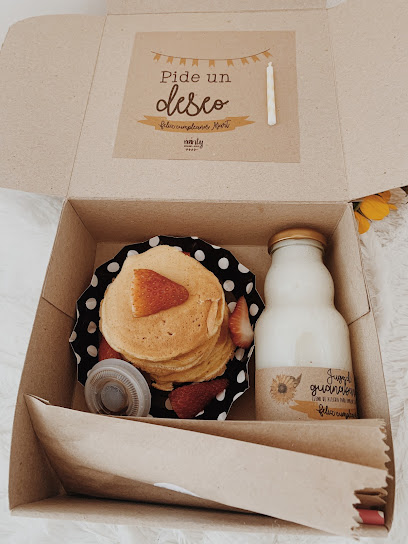
Indigo creativo
Explore Indigo Creativo in Ibarra for unique Ecuadorian gifts and crafts that capture the essence of local artistry and culture.
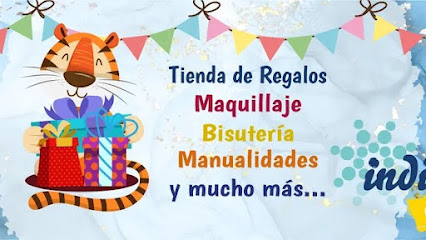
V.Connection
Discover unique fashion at V.Connection in Ibarra, where local craftsmanship meets modern style for the perfect shopping experience.
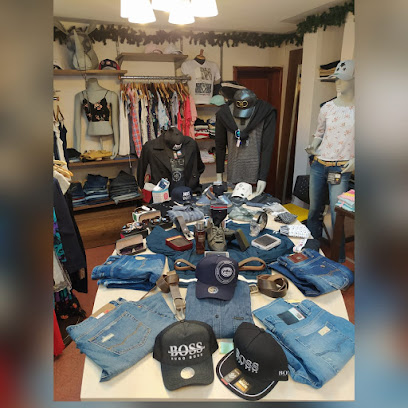
Roland • Plaza Shopping Center
Explore Roland • Plaza Shopping Center in Ibarra for an unforgettable shopping experience filled with trendy clothing and local fashion.

Essential bars & hidden hideouts
CoctiKi Cócteles (Ibarra)
Discover the lively nightlife at CoctiKi Cócteles in Ibarra, where expertly crafted cocktails and vibrant atmosphere await.
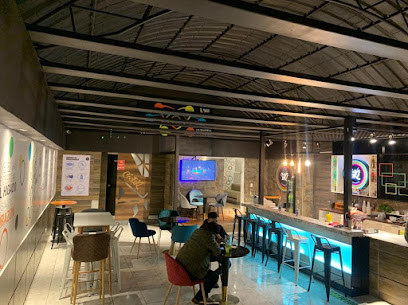
ROCK CAFE BAR & RESTAURANTE
Experience the vibrant nightlife and exquisite cuisine at Rock Cafe Bar & Restaurante in Ibarra, a must-visit for every traveler seeking local flavor.
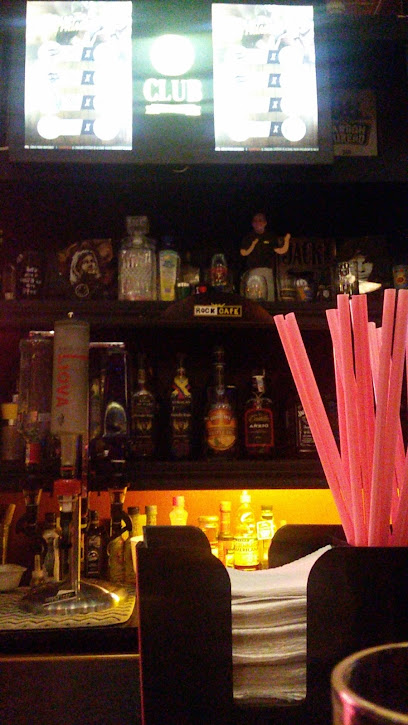
Rincon de Moises Lounge Bar
Discover the lively atmosphere and local flavors at Rincon de Moises Lounge Bar, a top stop for tourists in Ibarra.
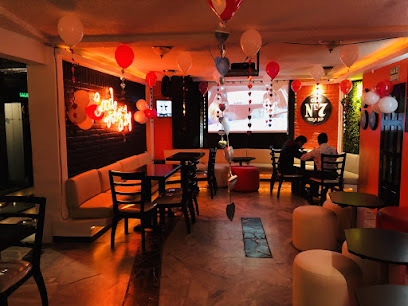
Top lounge bar
Discover Ibarra's top lounge bar, blending local grill flavors with a vibrant atmosphere perfect for relaxation and socializing.
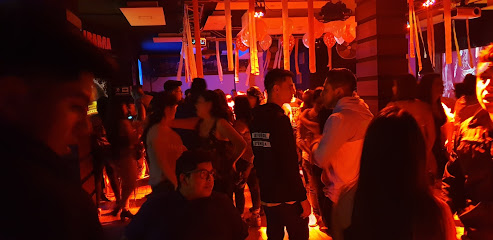
Recuerdos Bar Karaoke Discoteke
Unleash your inner star at Recuerdos Bar Karaoke Discoteke, Ibarra's lively hotspot for music, drinks, and unforgettable nights.
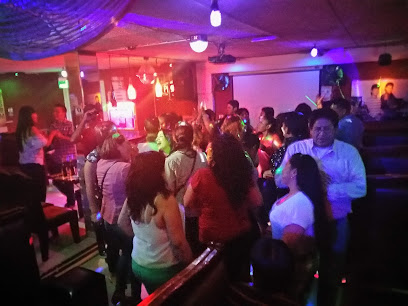
Paradize bar
Experience the vibrant nightlife at Paradize Bar in Ibarra, where refreshing cocktails and a lively atmosphere await you.
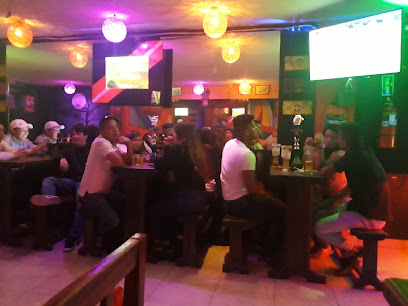
La Chismosa
Experience the lively nightlife of Ibarra at La Chismosa, where local culture meets a vibrant bar atmosphere, perfect for tourists and locals alike.
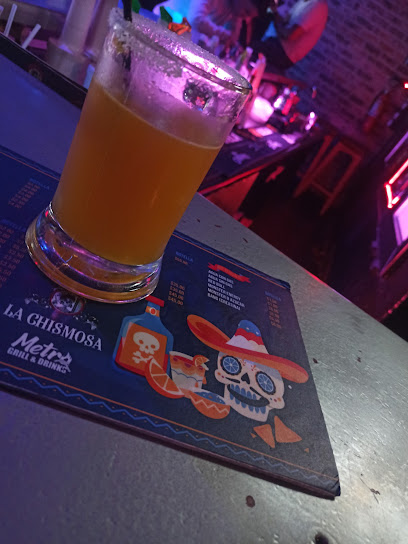
Gastropub Luna Cerveza Artesanal
Experience the best of local cuisine and handcrafted brews at Gastropub Luna Cerveza Artesanal in Ibarra.
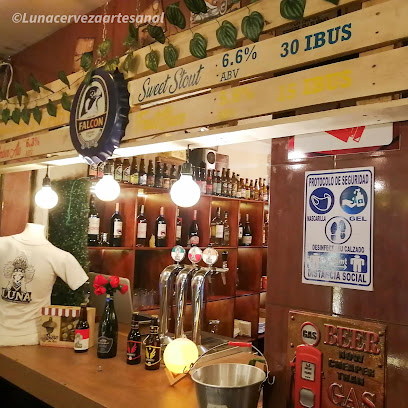
Bar Ojos de Cielo
Discover vibrant nightlife and local flavors at Bar Ojos de Cielo in Ibarra, a favorite among tourists and locals alike.
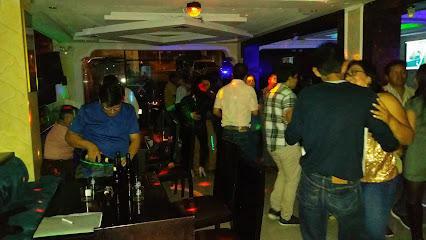
Retro's Cafe & Grill
Experience the vibrant atmosphere and delicious local cuisine at Retro's Cafe & Grill, a top bar in Ibarra offering unforgettable dining moments.
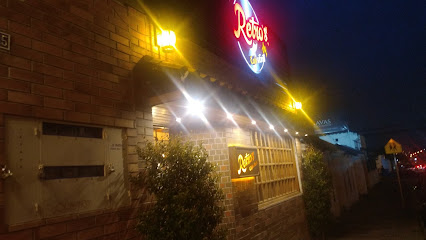
La Libélula
Experience the vibrant nightlife of Ibarra at La Libélula, a bar that offers exquisite cocktails and a lively local atmosphere.
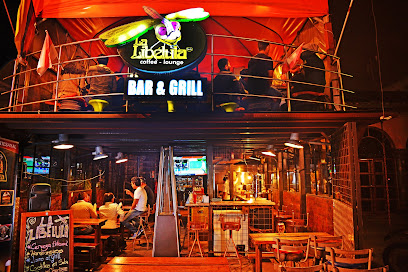
Rust Pub & Beer
Experience the lively atmosphere of Rust Pub & Beer in Ibarra, where delightful drinks and great company come together for an unforgettable night out.
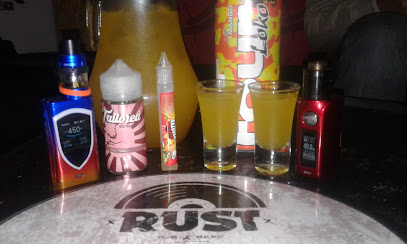
Elixir club bar
Discover the vibrant nightlife at Elixir Club Bar in Ibarra, where creative cocktails and live music create an unforgettable experience.
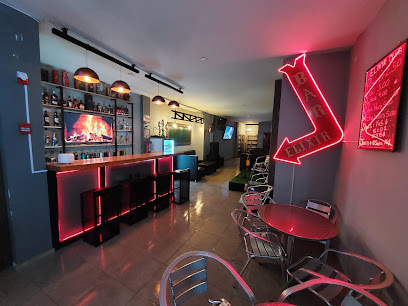
Ficus Gastro Bar
Experience the vibrant atmosphere and diverse culinary offerings at Ficus Gastro Bar in Ibarra, a must-visit for tourists seeking local flavors.
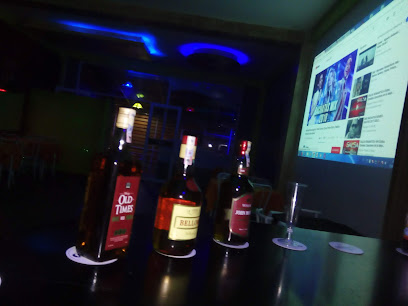
Local Phrases
-
- HelloHola
[oh-lah] - GoodbyeAdiós
[ah-dyohs] - YesSí
[see] - NoNo
[noh] - Please/You're welcomePor favor/De nada
[pohr fah-vohr/de nah-dah] - Thank youGracias
[grah-syahs] - Excuse me/SorryDisculpe/Lo siento
[dees-kool-pe/loh syen-toh] - How are you?¿Cómo estás?
[koh-moh ehs-tahs] - Fine. And you?Bien. ¿Y tú?
[byen. ee too] - Do you speak English?¿Hablas inglés?
[ah-blahs een-glehs] - I don't understandNo entiendo
[noh ehn-tyen-doh]
- HelloHola
-
- I'd like to see the menu, pleaseMe gustaría ver el menú, por favor
[meh goos-tah-ree-ah vehr ehl meh-noo, pohr fah-vohr] - I don't eat meatNo como carne
[noh koh-moh kahr-neh] - Cheers!Salud!
[sah-lood] - I would like to pay, pleaseMe gustaría pagar, por favor
[meh goos-tah-ree-ah pah-gahr, pohr fah-vohr]
- I'd like to see the menu, pleaseMe gustaría ver el menú, por favor
-
- Help!¡Ayuda!
[ah-yoo-dah] - Go away!¡Vete!
[veh-teh] - Call the Police!Llama a la policía!
[yah-mah ah lah poh-lee-see-ah] - Call a doctor!Llama a un doctor!
[yah-mah ah oon dohk-tohr] - I'm lostEstoy perdido/a
[ehs-toy pehr-dee-doh/ah] - I'm illEstoy enfermo/a
[ehs-toy ehn-fehr-moh/ah]
- Help!¡Ayuda!
-
- I'd like to buy...Me gustaría comprar...
[meh goos-tah-ree-ah kohm-prahr...] - I'm just lookingSólo estoy mirando
[soh-loh ehs-toy meer-ahn-doh] - How much is it?¿Cuánto cuesta?
[kwan-toh kwehs-tah] - That's too expensiveEso es demasiado caro
[eh-soh ehs deh-mah-syah-doh kah-roh] - Can you lower the price?¿Puede bajar el precio?
[pweh-deh bah-hahr ehl pree-syoh]
- I'd like to buy...Me gustaría comprar...
-
- What time is it?¿Qué hora es?
[keh oh-rah ehs] - It's one o'clockEs la una en punto
[ehs lah oo-nah ehn poon-toh] - Half past (10)Media (10)
[meh-dyah (dee-ehs)] - MorningMañana
[mah-nyah-nah] - AfternoonTarde
[tahr-deh] - EveningNoche
[noh-cheh] - YesterdayAyer
[ah-yehr] - TodayHoy
[oy] - TomorrowMañana
[mah-nyah-nah] - 1Uno
[oo-noh] - 2Dos
[dohs] - 3Tres
[trehs] - 4Cuatro
[kwah-troh] - 5Cinco
[seen-koh] - 6Seis
[says] - 7Siete
[syeh-teh] - 8Ocho
[oh-choh] - 9Nueve
[nweh-veh] - 10Diez
[dyehs]
- What time is it?¿Qué hora es?
-
- Where's a/the...?¿Dónde está...?
[dohn-deh ehs-tah] - What's the address?¿Cuál es la dirección?
[kwahl ehs lah dee-rehk-syohn] - Can you show me (on the map)?¿Puedes mostrarme (en el mapa)?
[pweh-dehs mohs-trar-meh (ehn ehl mah-pah)] - When's the next (bus)?¿Cuándo es el próximo (autobús)?
[kwan-doh ehs ehl proh-ksee-moh (ow-toh-boos)] - A ticket (to ....)Un boleto (a ....)
[oon boh-leh-toh (ah ....)]
- Where's a/the...?¿Dónde está...?
History of Ibarra
-
Ibarra, also known as 'La Ciudad Blanca' (The White City), was founded on September 28, 1606, by Cristóbal de Troya. The city was established during the Spanish colonization of Ecuador and named after Miguel de Ibarra, the president of the Royal Audience of Quito. The city's foundation was a strategic move to consolidate Spanish control over the region.
-
One of the most significant events in Ibarra's history is the devastating earthquake that struck the region on August 16, 1868. The earthquake, which registered a magnitude of 6.7, caused widespread destruction and claimed thousands of lives. The city was almost entirely destroyed, but the resilience of its inhabitants led to a remarkable rebuilding effort that shaped the modern layout of Ibarra.
-
Following the 1868 earthquake, Ibarra underwent a significant period of reconstruction. With the help of the Ecuadorian government and international aid, the city was rebuilt with improved infrastructure and architecture. This period also marked the emergence of a more diverse and vibrant cultural scene, as Ibarra began to attract settlers from various parts of Ecuador and beyond.
-
Ibarra is renowned for its rich cultural heritage, which is showcased through various festivals and traditions. The 'Fiesta de los Lagos,' celebrated in September, is one of the city's most famous events, featuring parades, music, and traditional dances. Another significant celebration is the 'Semana Santa' (Holy Week), which includes elaborate processions and religious ceremonies, reflecting the deep-rooted Catholic traditions of the region.
-
In recent decades, Ibarra has experienced significant economic growth and modernization. The city's economy has diversified, with agriculture, commerce, and tourism playing vital roles. Ibarra's strategic location near the Pan-American Highway has facilitated trade and connectivity, making it a key hub in the northern highlands of Ecuador. Modern amenities, hotels, and restaurants have flourished, catering to both locals and visitors.
-
Ibarra is surrounded by stunning natural landscapes, including lakes, mountains, and forests. The Yahuarcocha Lake, located just outside the city, is a popular destination for water sports and leisure activities. The Imbabura Volcano, an iconic landmark, offers hiking opportunities and breathtaking views. The city's commitment to eco-tourism is evident in its numerous parks and reserves, promoting sustainable travel and environmental conservation.
Ibarra Essentials
-
Ibarra is located in the northern part of Ecuador, about 115 kilometers from Quito, the capital. The most common way to reach Ibarra is by bus from Quito's Terminal Carcelén. The journey takes approximately 2 to 3 hours. Alternatively, you can hire a private taxi or use ride-sharing services for a more comfortable journey. For those driving, the Pan-American Highway (E35) connects Quito to Ibarra, offering a scenic drive through the Andean highlands.
-
Ibarra has a variety of transportation options to help you navigate the city and its surroundings. Local buses are frequent and inexpensive, providing access to most parts of the city. Taxis are also readily available and can be hailed on the street or booked through mobile apps. For a more leisurely exploration, consider renting a bicycle to enjoy the city's parks and lakeside areas. Renting a car can be a convenient option for exploring the nearby attractions at your own pace.
-
The official currency in Ecuador is the US Dollar (USD). Credit cards are widely accepted in hotels, restaurants, and larger shops, but it is advisable to carry some cash, especially for smaller establishments and markets. ATMs are available throughout Ibarra, but it's a good idea to withdraw sufficient cash before heading to rural areas where ATMs might be scarce.
-
Ibarra is generally considered a safe destination for tourists. However, as with any travel location, it's important to take standard precautions. Avoid walking alone at night in unfamiliar areas and stay vigilant in crowded places to prevent pickpocketing. The neighborhoods around the central market and bus terminal can be busier and may require extra caution. Always keep your belongings secure and be aware of your surroundings.
-
In case of emergency, dial 911 for immediate assistance. Ibarra has local police stations and medical facilities available to assist tourists. It is advisable to have travel insurance that covers medical emergencies. For minor health issues, there are numerous pharmacies throughout the city where you can purchase over-the-counter medications.
-
Fashion: Do dress comfortably and modestly. Avoid wearing overly revealing clothing, especially when visiting religious sites. Religion: Do respect local customs. While there are no strict dress codes, showing respect for religious practices is appreciated. Public Transport: Do be courteous and offer your seat to elderly passengers. Don't eat or drink on public transport. Greetings: Do greet people with a handshake and a smile. A slight nod of the head can also be a respectful gesture. Eating & Drinking: Do try local dishes and accept food graciously. Don't refuse hospitality, as it may be considered impolite.
-
To experience Ibarra like a local, visit the bustling markets where you can find fresh produce and traditional Ecuadorian goods. Engage with locals, who are often friendly and eager to share stories about their city. Don't miss the opportunity to visit Lago Yahuarcocha, a beautiful lake with historical significance. For an authentic experience, try the local specialty, 'helado de paila,' a traditional ice cream made in bronze pans.
Trending Landmark in Ibarra
-
Parque Ciudad Blanca (Céntrica)
-
Pedro Moncayo Park
-
Mirador San Miguel Arcangel
-
El Barbaro
-
La Estelita
-
Francisco Calderón Park
-
Centro Cultural El Cuartel
-
Laguna de Yahuarcocha
-
Tolas de Socapamba
-
ARTE VISTA
-
Central Bank Museum - Ibarra
-
Esquina del Coco
-
Centro Cultural Daniel Reyes
-
Salinas De Ibarra
-
Museo Nicolas Herrera
Nearby Cities to Ibarra
-
Things To Do in Otavalo
-
Things To Do in Quito
-
Things To Do in Mindo
-
Things To Do in Pasto
-
Things To Do in Tena
-
Things To Do in Ambato
-
Things To Do in Popayán
-
Things To Do in Macas
-
Things To Do in Manta
-
Things To Do in Guayaquil
-
Things To Do in Cuenca
-
Things To Do in Cali
-
Things To Do in Salinas
-
Things To Do in Neiva
-
Things To Do in Loja










